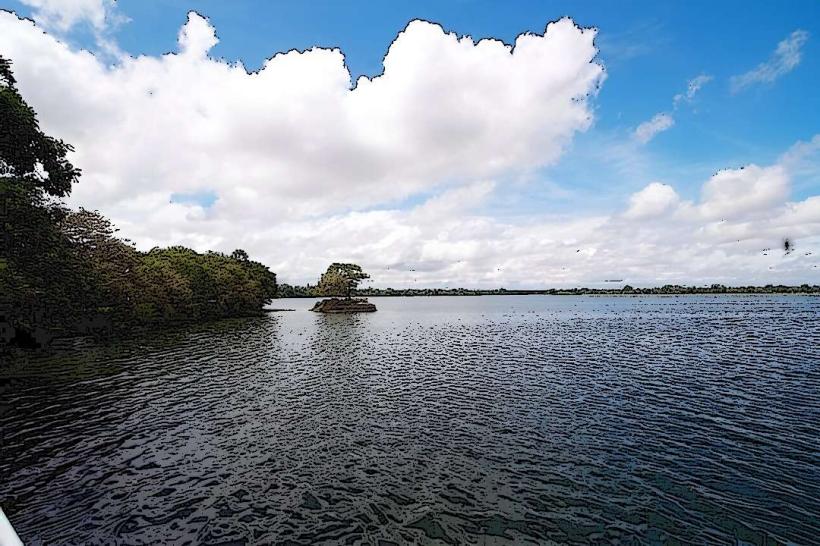Information
Landmark: Mmahu VillageCity: Imo
Country: Nigeria
Continent: Africa
Mmahu Village, Imo, Nigeria, Africa
Mmahu Village is a prominent settlement in the Ohaji/Egbema Local Government Area (LGA) of Imo State, Nigeria. Located in the southeastern region of the country, Mmahu is part of the larger Egbema clan, and the village plays a key role in the administrative and cultural landscape of the area.
Geography and Location
Location: Mmahu is situated within the Ohaji/Egbema LGA, which is in the southwestern part of Imo State. It lies near Oguta LGA to the north and shares borders with Ogba/Egbema/Ndoni in Rivers State to the southwest.
Natural Resources: The area is part of the Niger Delta and is rich in natural resources, particularly oil and gas. This has influenced the local economy and development patterns.
Cultural and Administrative Importance
Autonomous Community: Mmahu is considered an autonomous community within the Ohaji/Egbema LGA. It is part of the wider Egbema Clan, which has a deep-rooted cultural heritage and history.
Traditional Leadership: The village is governed by traditional leaders and chiefs who play significant roles in the community's social, cultural, and political affairs. These leaders are integral in maintaining order, administering justice, and preserving the village's customs and traditions.
Cultural Practices: Like many other villages in the Niger Delta, Mmahu has a rich tradition of festivals, rituals, and celebrations that honor ancestral deities and mark important events in the community's life.
Economy and Natural Resources
Oil and Gas: Mmahu is situated in an oil-rich region. The Niger Delta is one of Nigeria's primary sources of petroleum, and much of the surrounding land is used for oil exploration and production. The local economy is influenced by oil, which has brought both opportunities and challenges to the community.
Agriculture: In addition to oil, the local economy also relies on agriculture. Crops such as yam, cassava, and cocoyam are grown by farmers in the area. Fishing is also a common livelihood due to the proximity to rivers and wetlands.
Egbema Power Station: A significant infrastructural project in the area is the Egbema Power Station, which was established to generate electricity for the region. The power station has been a focal point for the government's efforts to improve energy access in the area. It was part of Nigeria's wider plan to address energy deficits and promote industrial growth.
Infrastructure and Development
Roads and Transportation: Mmahu is accessible via the major road networks that connect the region to other parts of Imo State and the Niger Delta. However, like many areas in the Niger Delta, infrastructure development in Mmahu has been slow due to challenges such as flooding, poor road conditions, and the impact of oil exploration activities on the environment.
Education and Healthcare: The village has access to basic educational and healthcare facilities, though like many rural areas in Nigeria, it may face challenges in providing adequate services due to limited resources.
Egbema Power Station: The power station near Mmahu is a key development initiative that aims to support local industry and provide power to the surrounding villages, including Mmahu.
Challenges and Environmental Impact
Oil Exploration: While oil exploration has brought economic benefits, it has also caused environmental damage in the region, including soil degradation, water contamination, and deforestation. This has had a direct impact on local agriculture and fishing activities.
Flooding: The Niger Delta region, including Mmahu, is prone to flooding, especially during the rainy season. This poses a threat to local infrastructure, homes, and livelihoods.
Youth Unemployment: Like many other communities in the Niger Delta, Mmahu faces challenges related to youth unemployment and underdevelopment. Despite the region's wealth in natural resources, economic benefits have not always been equally distributed.
Key Features and Attractions
Traditional Festivals: Mmahu hosts various traditional festivals and celebrations, including harvest festivals, cultural dances, and events dedicated to honoring local deities. These cultural practices are important to the community and attract visitors.
Ecotourism: Although Mmahu is not widely known as a tourist destination, the surrounding natural environment, including rivers, forests, and wetlands, offers potential for eco-tourism. Visitors can explore the region's biodiversity and experience the culture and way of life of the local people.
Nearby Villages and Communities
Mmahu is located near other villages within the Ohaji/Egbema LGA, such as Obiakpu, Ekeugba, and Egbema North. These neighboring communities share similar cultural practices, natural resources, and challenges.
In summary, Mmahu is a village with deep cultural roots, located in the heart of Nigeria’s oil-producing region. Despite the economic opportunities provided by oil, the community faces numerous challenges related to environmental degradation, infrastructure, and social development. Nonetheless, it remains a significant part of the Ohaji/Egbema LGA, with a rich cultural heritage and potential for growth.


